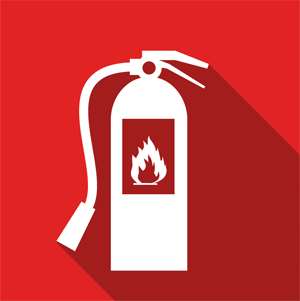
Level 1 Food Safety (Manufacturing, Catering & Retail)
£15 Per candidate
Duration: 50 minutes (Note: This is based on the amount of video content shown and is rounded off. It does not account in any way for loading time or thinking time on the questions).
The Level 1 Awards in Food Safety provide an ideal solution to staff induction training including:
- New employees with minimal or no prior food safety knowledge
- Employees handling low-risk or wrapped foods (category A)
- Front of house employees, such as waiting or check out staff
- Back of house employees, such as kitchen porters or warehouse staff

Level 2 Food Safety (Manufacturing, Catering & Retail)
£25 Per candidate
Duration: 75 minutes (Note: This is based on the amount of video content shown and is rounded off. It does not account in any way for loading time or thinking time on the questions).
Level 2 Awards in Food Safety are suited for anyone working in a catering, manufacturing or retail setting where food is prepared, cooked and handled.
Typical environments may include:
- Pubs, hotels, restaurants
- Supermarkets and retail environments
- Food and drink manufacturers
- Hospitals
- Care homes
- Schools

Legionella Management
£65 per candidate
Duration: 75 minutes (Note: This is based on the amount of video content shown and is rounded off. It does not account in any way for loading time or thinking time on the questions).
This course explains the background to Legionella, the potential risks associated with water systems and how these can be prevented or controlled. It helps you to understand the risk that Legionella poses and helps you develop the systems and working practices you need to stay ahead. It gives you enough knowledge to get a Legionella control programme off the ground yourself – or make confident, informed choices when commissioning others to take this on for you.

Basic Fire Safety
£25 per candidate
Duration: 60 minutes (Note: This is based on the amount of video content shown and is rounded off. It does not account in any way for loading time or thinking time on the questions).
This course will provide candidates with a general understanding of basic fire awareness including what should be done in the event of a fire, how to prevent a fire occurring and a basic introduction of the protocol of extinguishing a fire.
It is a cost effective way for employers to fulfil their legal obligation to provide their employees with the necessary understanding of fire awareness.

Basic Fire Safety for Care Homes
£25 per candidate
Duration: 60 minutes (Note: This is based on the amount of video content shown and is rounded off. It does not account in any way for loading time or thinking time on the questions).
This course covers the same content as the Basic Fire Safety course with additional content tailored specifically for employees that work in care homes.

Fire Marshal
£35 per candidate
Duration: 220 minutes (Note: This is based on the amount of video content shown and is rounded off. It does not account in any way for loading time or thinking time on the questions).
Fire marshals (sometimes known as fire wardens) are civilians trained to assist in emergency fire evacuation procedures at businesses and other organizations. It is a legal obligation that workplaces must have a sufficient number of fire marshals to deal with fire emergencies.
This course provides extensive knowledge of fire prevention, evacuation protocol and using fire extinguishers.

Fire Marshal for Care Homes
£35 per candidate
Duration: 220 minutes (Note: This is based on the amount of video content shown and is rounded off. It does not account in any way for loading time or thinking time on the questions).
This course covers the same content as the Fire Marshal course with additional content tailored specifically for employees that work in care homes.

Fire Extinguisher
£25 per candidate
Duration: 25 minutes (Note: This is based on the amount of video content shown and is rounded off. It does not account in any way for loading time or thinking time on the questions).
This course provides training in the use of different types of fire extinguishers and the protocol of tackling a fire.

Emergency First Aid at Work
£35 per candidate
Duration: 150 minutes (Note: This is based on the amount of video content shown and is rounded off. It does not account in any way for loading time or thinking time on the questions).
What is Emergency First Aid? Well it’s exactly that, the first aid to be offered if an incident occurs. Not many of us are confronted with scenes of blood and gore in our everyday lives – so usually first aid could be as simple as sticking a plaster on a small cut.
But what if you did find yourself confronted with a more serious situation. This Emergency aid course will highlight some of the most common situations that you might come across and the actions that you can take to help.
In the most serious situations a first aider’s role will be to assess the scene so that accurate information can be passed to Emergency services and then to act appropriately to try and increase the patients odds of survival.

Abrasive Wheels Training
£35 per candidate
Duration: 100 minutes (Note: This is based on the amount of video content shown and is rounded off. It does not account in any way for loading time or thinking time on the questions).
This course is aimed at anyone who uses abrasive wheels, or employs people who use abrasive wheels as part of their work.
There are a wide range of tools and processes that use abrasive wheels and ensuring these are used correctly and safely is of paramount importance. Applications range from hand grinding to disc cutting. They can be used at all stages of a work process, for making preliminary cuts and scores in materials, or for fine polishing and finishing.
Different wheels will have different properties and characteristics suitable for particular tasks. They also have different weaknesses and can pose different risks and hazards in handling and use. For this reason, it’s important that you always select the right abrasive wheel for the job and use it with the right machinery.
This course covers the anatomy of an abrasive wheel, the dangers associated with their use, Storage and handling and much more.

Asbestos Awareness
£35 per candidate
Duration: 65 minutes (Note: This is based on the amount of video content shown and is rounded off. It does not account in any way for loading time or thinking time on the questions).
This course covers all areas of asbestos awareness and is designed for anyone who may come into contact with asbestos in their work. Most commonly, that includes builders, plumbers, electricians, carpenters and other building related and maintenance trades.
The course consists of 4 modules with questions at the end. The modules cover areas such as recognising asbestos, where it is used, minimising the risks and legislation about working with asbestos.
You are given the chance to review all your answers at the end of each module before final submission and you will be given 3 attempts at each module to achieve a pass rate of 100%.

Asbestos for Architects & Designers
£35 per candidate
Duration: 75 minutes (Note: This is based on the amount of video content shown and is rounded off. It does not account in any way for loading time or thinking time on the questions).
This course covers the same subjects as our Asbestos Awareness course with an additional module aimed specifically at architects and designers working with buildings that may contain asbestos. It provides information about the legislation governing asbestos in work and outlines the responsibilities of architects and designers.
The course consists of 5 modules with questions at the end. You are given the chance to review all your answers at the end of each module before final submission and you will be given 3 attempts at each module to achieve a pass rate of 100%.

Manual Handling
£35 per candidate
Duration: 75 minutes (Note: This is based on the amount of video content shown and is rounded off. It does not account in any way for loading time or thinking time on the questions).
Training your employees with our online system will go a long way to giving them greater awareness of the dangers that poor manual handling poses, as well as covering safe handling techniques, practical solutions to manual handling issues and the use of mechanical aids.

Control of Substances Hazardous to Health (COSHH)
£35 per candidate
Duration: 125 minutes (Note: This is based on the amount of video content shown and is rounded off. It does not account in any way for loading time or thinking time on the questions).
This course covers what you need to know about the Control of Substances Hazardous to Health (COSHH). It’s aimed at anyone who is exposed to Substances Hazardous to Health at work, as well as line managers with responsibility for such people.
So what do we mean by ‘Substances Hazardous to Health’?
In legal terms, these are substances that are classified as “very toxic, toxic, harmful, corrosive or Irritant” under the Classification, Labelling and Packaging Regulation (CLP). This was a new regulation that came into force in January 2009 dovetailing with a set of regulations called REACH. REACH is a European Union regulation concerning the Registration, Evaluation, Authorisation and Restriction of Chemicals, which came into force on 1st June 2007. One of the main aims of REACH is to provide a high level of protection for human health and the environment from the use of chemicals.

Working at Height
£35 per candidate
Duration: 105 minutes (Note: This is based on the amount of video content shown and is rounded off. It does not account in any way for loading time or thinking time on the questions).
All working at height situations are covered by health and safety legislation. Chief among these is the Work at Height Regulations 2005. These regulations confer legal duties on employers and employees to assess, control and minimise risks and hazards from work at height.
This course covers topics including the dangers of working at height, the regulations, the hierarchy of controls, assessing risk and much more.
It’s vital to understand all this because as I’m sure you’ll know, working at height can be extremely dangerous.

Safeguarding Children
£35 per candidate
Duration: 75 minutes (Note: This is based on the amount of video content shown and is rounded off. It does not account in any way for loading time or thinking time on the questions).
Everyone, regardless of their age, gender, religion, ethnicity or background has the right to a healthy, happy life. Safeguarding is about minimising and managing the risks to vulnerable individuals.
This course, ‘Safeguarding Children’, is aimed at anyone who has a duty of care for, or comes into contact with children in their chosen profession.
Although most children are brought up in loving, nurturing environments and grow up to lead happy lives, the subject has to be discussed in order to better protect those children that need it most.
During this course you will hear many facts, figures and details surrounding the risk to children, the types of abuse suffered, how to recognise the signs of abuse and key safeguarding legislations put in place to minimise the abuse of children.
Once you are able to recognise the signs of possible abuse, and know the steps you should take if you suspect it you will be better able to protect the children in your care.

Safeguarding Adults
£35 per candidate
Duration: 75 minutes (Note: This is based on the amount of video content shown and is rounded off. It does not account in any way for loading time or thinking time on the questions).
This course is aimed at anyone who has a duty of care for, or comes into contact with, adults in need of care and support, either as a paid professional or a volunteer. This includes, but isn’t limited to, those that work in domiciliary care, the NHS, community centres, prisons or with a family member at home, and sets out the roles and responsibilities everyone must undertake to protect an adult’s right to live in safety, free from abuse and neglect. You and the organisation you work for must take appropriate and proportional measures necessary for the protection of adults in your care, while still ensuring they are supported and empowered to have control over how they want to live their lives and this course can bring you one step closer to being able to do this.
This means that whatever the circumstance, you and the organisation you work for must take appropriate and proportional measures necessary for the protection of adults in your care, while still ensuring they are supported and empowered to have control over how they want to live their lives.

Display Screen Equipment Awareness
£25 per candidate
Duration: 50 minutes (Note: This is based on the amount of video content shown and is rounded off. It does not account in any way for loading time or thinking time on the questions).
These courses are aimed at users of display screen equipment (DSE) and those responsible for assessing display screen equipment. A ‘user’, is anyone who regularly uses display screen equipment for a significant part of their normal work. In practice, if you use display screen equipment continuously for more than one hour a day, then you’re a ‘user’.
So what do we mean by display screen equipment?
The first thing most people think of is a computer monitor. But that’s not the only thing it refers to Display screen equipment could also mean laptops, tablet PCs, televisions, smartphones, CNC control pads, portable diagnostic screens or equipment containing cathode ray tubes, or CRTs.
The Health and Safety (Display Screen Equipment) Regulations contain special directives covering DSE safety. Both employers and employee‐users have responsibilities under the legislation.
This course fulfils your statutory training obligations and covers, among other things, the correct way to set up and use your display screen equipment safely. Reducing the risk of work related conditions.

Assessing Display Screen Equipment
£35 per candidate
Duration: 110 minutes (Note: This is based on the amount of video content shown and is rounded off. It does not account in any way for loading time or thinking time on the questions).
These courses are aimed at users of display screen equipment (DSE) and those responsible for assessing display screen equipment. A ‘user’, is anyone who regularly uses display screen equipment for a significant part of their normal work. In practice, if you use display screen equipment continuously for more than one hour a day, then you’re a ‘user’.
So what do we mean by display screen equipment?
The first thing most people think of is a computer monitor. But that’s not the only thing it refers to Display screen equipment could also mean laptops, tablet PCs, televisions, smartphones, CNC control pads, portable diagnostic screens or equipment containing cathode ray tubes, or CRTs.
The Health and Safety (Display Screen Equipment) Regulations contain special directives covering DSE safety. Both employers and employee‐users have responsibilities under the legislation.
This course fulfils your statutory training obligations and covers, among other things, the correct way to set up and use your display screen equipment safely. Reducing the risk of work related conditions.

Working Safely
£65 per candidate
Duration: 150 minutes (Note: This is based on the amount of video content shown and is rounded off. It does not account in any way for loading time or thinking time on the questions).
Working safely is in the interest and concern of all staff – both the employers and employees. Although most of the legal duties fall to the employer, Health and Safety law is one of the few pieces of legislation that places duties on the employee as well.
There are three reasons for managing risk at work that bring benefit for all concerned – moral; not causing harm to work colleagues, legislative; the law requires it! – And finally financial; all accidents bear a cost to both parties.